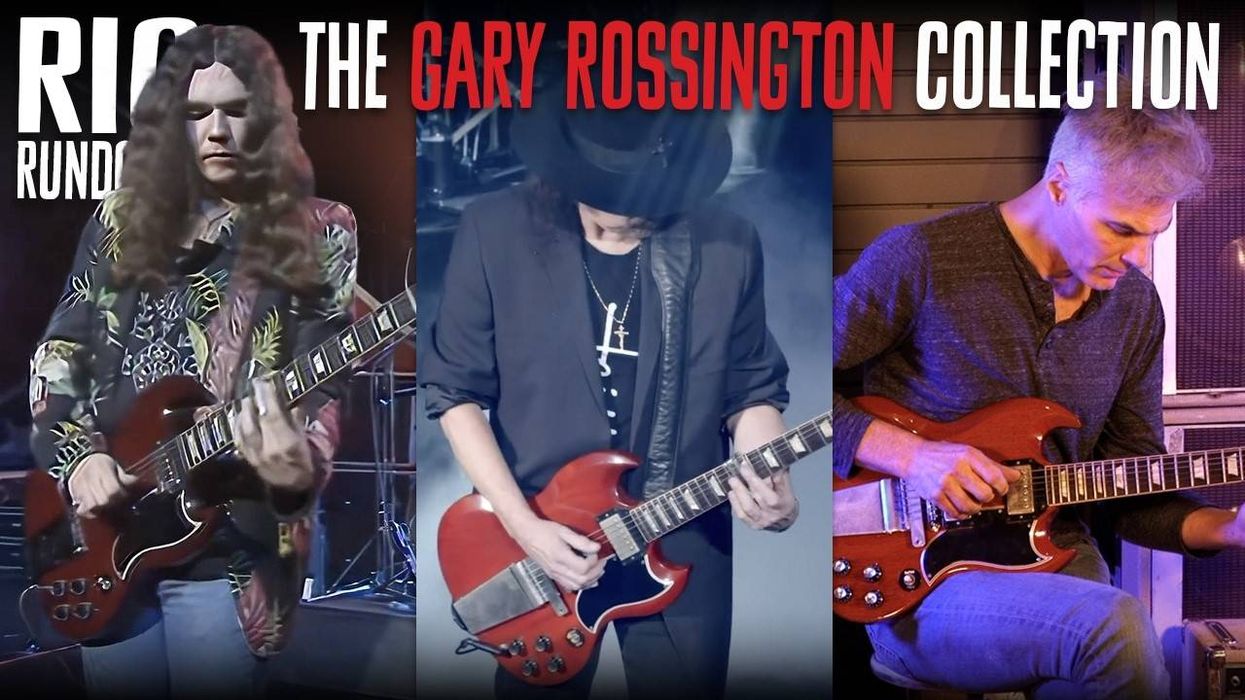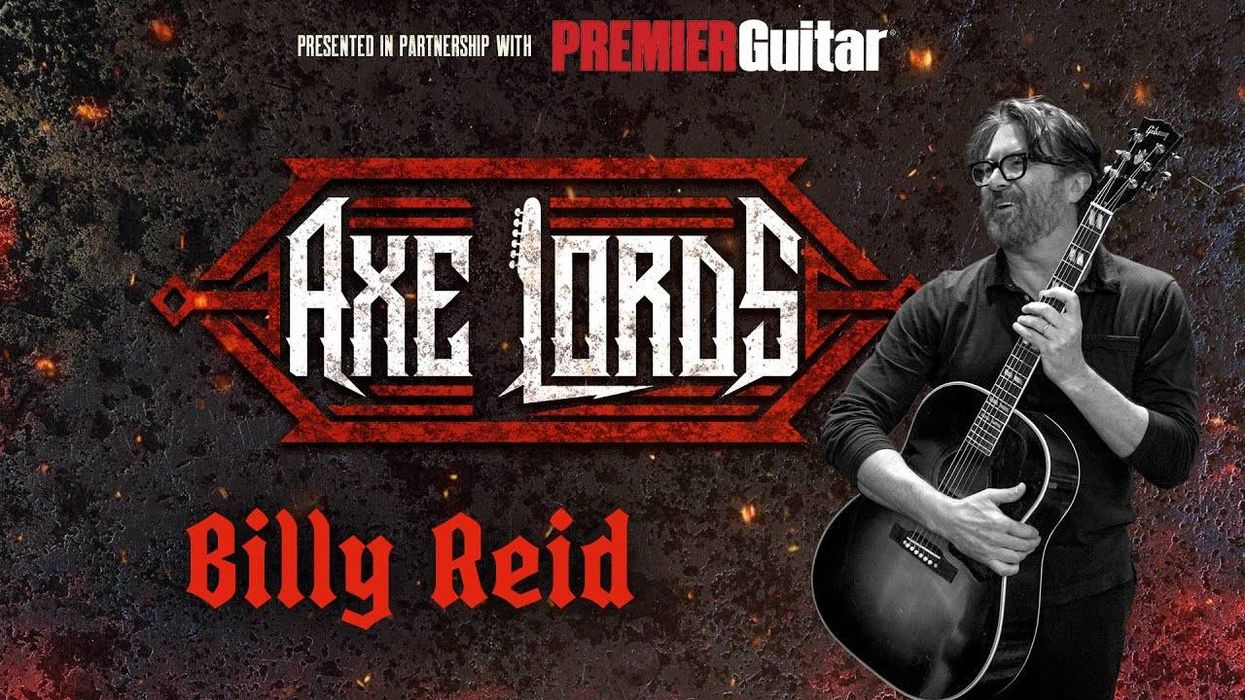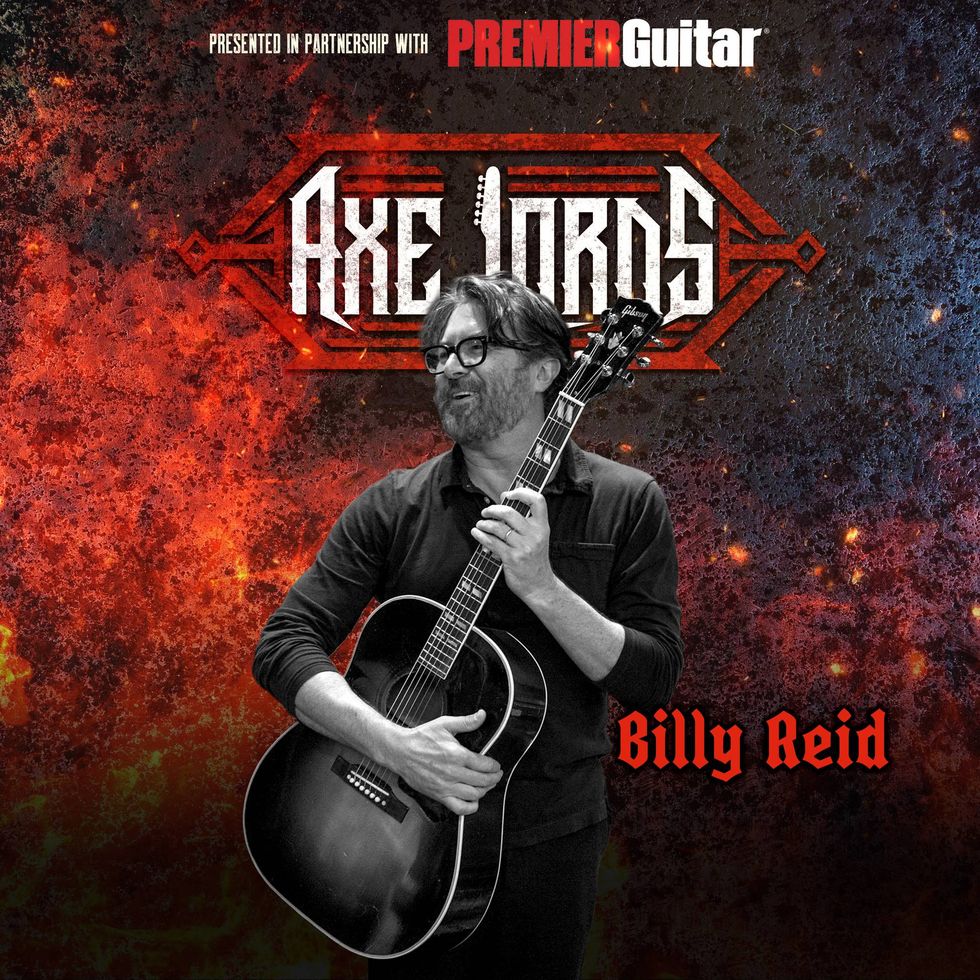It can be a dangerous for an artist to wait seven years between albums. In today's world of YouTube, Spotify, and on-demand anything, it seems like our choices are growing faster than our attention spans. The last time Jonny Lang released a studio album, George W. Bush was in the White House, The Police reunion was still a pipe dream, and Facebook was still a mystery to the non-college crowd.
Although his studio output was put on hold, he never slowed down the tour bus and released Live at the Ryman in 2010. It showcased his mix of gospel, soul, and blues while keeping his stinging guitar attack front and center. Once the stars aligned and the muse struck, Lang entered the studio for Fight for My Soul, an introspective album that connects Lang with one of his musical heroes, producer Tommy Sims. As Lang mentions, the delay between albums was based more on cultivating inspiration than a looming deadline. "If it gets really down to the wire, I'll sit and grind over it, but otherwise I hate doing that because it just doesn't pan out for me," he says. "Probably the two years leading up to finishing this record, was like a crazy, endless stream of writing and then it just shut down."
Luckily, once it shut down he had nearly 50 songs to choose from for this album. Where some artists might present a fully formed composition to the group, Lang prefers to have general sketches and rough demos and looks to his bandmates to add a creative angle to the tune. "There's something inside of each of the musicians playing the song that personally identifies with it and they do something based on that," states Lang. "I feel like what they play, to a certain extent, is totally permissible and should be in there because it's going to be a better result."
Throughout Fight for My Soul, Lang makes no bones about wearing his influences on his sleeve, or not succumbing to the pressure of the "guitar hero" label that was thrust upon him before he was old enough to drive. "If guitar was going to be in there, I wanted it to be musical, not just for the sake of a solo," says Lang. "I didn't want to just shove a bunch of lead guitar in there because that's maybe what I 'should' do."
We caught up with Lang to discuss his new album, advice he received from his blues mentors, and some back-alley amp deals.
When you start a project, do you have a mental list of goals?
Not really. I'm not an organized person in that regard. Usually I just go in the studio with the songs that I have prepared and just play them for the musicians. For the most part, I let them interpret the songs themselves and try and steer them as little as possible.
Has that always been your approach in the studio, or did it evolve over the years?
That's basically been it, but I'd say that I've learned a lot over the years, like how to streamline it a bit. The interaction with all the guys and nudging people to get more of what you want out of it. Somebody like Tommy Sims, who I worked with on this album, is a master at that. He gets so much done without hardly saying anything because he just knows what to do and how to work the whole atmosphere of the studio. When he's on the job, everyone leaves feeling good like something was accomplished and they had a stake in it.
How did you hook up with Tommy?
I've known Tommy for 12 or 13 years, and we've written together a bunch of times and got to know each other. It was always a dream of mine to work with him on a record because I've always been a fan of the stuff he produces and especially his solo record, Peace and Love, is a masterpiece to me. He's probably been the number one guy I wanted to work with over the years.
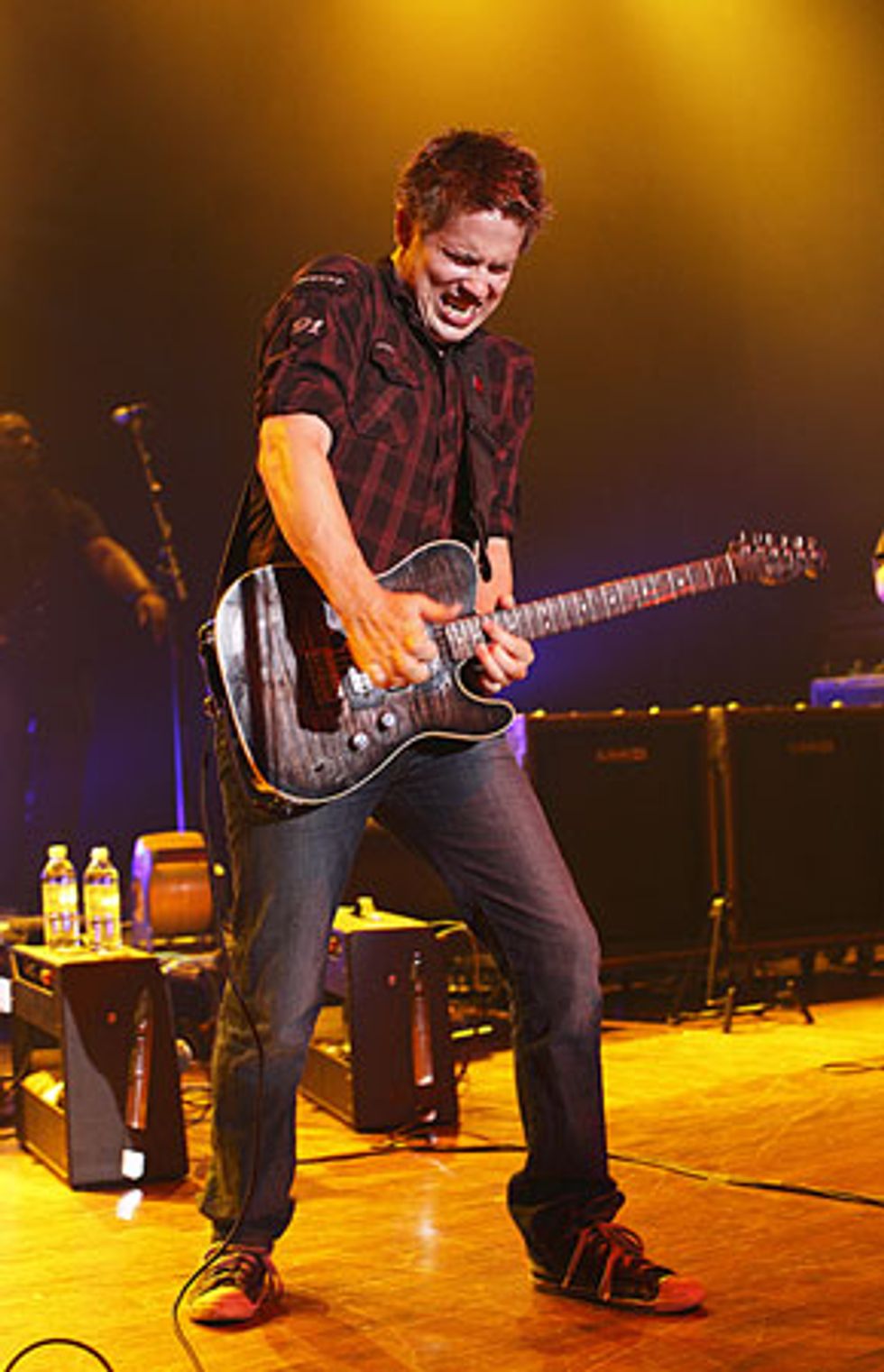
Live, Lang runs his Fender Custom Shop Tele (loaded with a trio of Bill Lawrence pickups) through two modified Fender '65 Deluxe Reverbs. Photo by Ken Settle
When working with a producer, do you sometimes find it difficult to give up
too much control?
Not with Tommy. If it was somebody else, maybe. You just have to pick those people. At this point it's more of a personal relationship than anything. Because somebody could have a lot of accolades that would warrant the trust, but until you get to know somebody it's tough to do that. I know Tommy well enough that I would trust him to do the whole thing by himself, probably.
In the blues, there's this tradition of mentors and you've had several. What do you learn from someone like Buddy Guy?
Mostly, it was the fact that he didn't treat me like a little kid. He really treated me like one of the guys and never really made mention of it. None of this, "Yeah, that's a cute trick, kid" stuff, which he could have easily done and it would have been fine [laughs]. To be accepted by him really meant that I didn't need to be validated by anyone else. If he says it's okay, then I feel good.
What about Luther Allison? He's one of the most underrated blues guitarists ever.
Yeah, man. I got to know him pretty well since we had the same management. I got to see him live a bunch of times. He truly was every bit of a legend as Buddy or one of those types of guys and his stage presence, guitar playing, singing—the whole thing was insane.
Luther was known for playing Les Pauls, but he was able to make them cut through everything.
Totally. He would just rip your head off with that thing. It was just searing.
Have you discovered any newer guitar influences?
There are a few guys I've discovered that I really like, but I'm too lazy to try and emulate. Steve Lukather, for one. Everyone knows Toto, but people other than musicians or people who aren't in the music business don't really know who he is. I just can't believe that. Especially the way he sings as well. He's one of the most brilliant musicians ever to me. I got to hang with Steve Vai a little bit over the last few years and I saw him live not too long ago. Steve also came out on this Jimi Hendrix tour that I've been on a few times. I was mistaken in thinking that he was more technically proficient than soulful. He is a deeply soulful guitar player and absolutely unique onto himself. I didn't hear him play the same thing remotely from night to night.
Two of Lang's early influences, Albert Collins and Tab Benoit, both played Teles and he credits that guitar
for shaping his style. Photo by Ken Settle.
When you were coming up, you were known as a Tele player. Lately, you have been using a Les Paul pretty often. When did you start to make the switch?
I'm like 50/50 with the Les Paul and Tele. The Les Paul that I have is a really special one. Basically, it's a '58 reissue. I have a couple of friends who have the highly sought-after Les Pauls and they brought them into the studio and this one has beaten every one of them. It's just a really good one. I got really lucky with it.
What made you originally start with the Tele?
Albert Collins and Tab Benoit. He was the other guy. He plays the semi-hollow Tele and that's where I got that idea. His tone is so unique and he gets such a great swampy midrange out of that Tele. When I saw that, I had to get one.
Do you feel like the Tele shaped your guitar style?
I do. More so on a Tele than that first Strat that I had. I got used to the tension of the strings with the stop tailpiece instead of the floater like the Strat. That's partially why I like Les Pauls. There's something about the scale being smaller that you just can't go crazy on them because the intonation gets weird. You have to be a little more reserved and precise with a Les Paul.
How did you get that thick tone for the solo on "I'll Always Be?"
I had the Les Paul going into this other amplifier made by this boutique builder called Mill Hill amps. They're all about a purity of signal path so there's no volume knob. You just plug it in—just a tube, transformer, and a speaker. The version that I played is called the Love amp. It's just beautiful with a Japanese symbol on the front. It's a Class A, so you just go for it. Actually, I think it was just waiting for that Les Paul.
Jonny Lang's Gear
Guitars
2002 Fender Custom Shop Tele loaded with three Bill Lawrence humbuckers
Gibson 1958 Les Paul Reissue
Martin J-40
Amps
Modified Fender Deluxe Reverb with Celestion Greenbacks
Mill Hill Audio Love
Effects
Visual Sound Route 66
Fulltone Ultimate Octave
Jam Pedals TubeDreamer+
Vox Wah
Boss AW-3 Dynamic Wah
Whirlwind The Bomb
Strings, Picks, and Accessories
D'Addario EXL110+ (.0105-.048)
D'Addario EJ26 (.011-.052)
Dunlop Gator Grip 1.5 mm picks
Dunlop straps and strap locks
3 Monkeys Dual Amp Switcher
Trailer Trash pedalboard
When you go in to track a guitar part do you have a basic tonal formula in your head or do you start from scratch every time?
I start from scratch, especially on this record. I wanted to honor the songs as much as possible and I did end up going back and putting a few more guitar things on at the end. I had my pedalboard, which is pretty simple, and a few different amps. I plugged into the board directly on several occasions—that worked out really well. Between five or six different configurations of stuff, I would just try and make all of that work.
Do you use the same pedalboard in the studio as you do on gigs?
It's the same board, although I do need to start a studio collection of stuff. I have a Visual Sound Route 66 pedal—which is a Tube Screamer-type deal. Then I have a Fulltone Ultimate Octave, a Boss AW-3 Dynamic Wah, a Jam Pedals TubeDreamer+, a Vox Wah, and a Whirlwind pedal called The Bomb. That's basically just a clean boost. I really like that one. If there was a delay or something going on I would just use Pro Tools for that.
You don't use any delay in your live rig?
I typically don't. I used to have an Echoplex, which I loved, but that disappeared.
Did you stick with your live rig of a pair of Fender Deluxe Reverbs in the studio?
Yeah. I use Deluxes a lot. They are new ones that've been modified. They're supposedly handwired to be like the older ones.
What is it about the Deluxe Reverb that you like?
Everything. The cut, the punch, and they're loud. They hold up without getting squishy when you turn them way up. They are like little Marshalls almost. I run them pretty wide open, maybe just a notch or so away from fully up. I run two of them, but I don't have them set up in stereo. Our front-of-house guy makes them stereo in the mix.
Who mods them for you?
It was this guy who was a friend of a friend of a friend and I could never really get him to come out to shows. I've actually never met him and I don't even know his name. It's funny, he's one of these guys who is really good and just shacks up on his own and does his thing. It's a little under the radar. I could probably do some detective work and get his name.
Sounds like a sketchy back-alley deal.
Exactly. [Laughs.] You might get your amp back or you might get a frozen liver. You never know.
YouTube It
During his European tour, Lang broke in "Blew Up (The House)" in front of an appreciative Paris crowd. During his solo (around 2:49) you can see his percussive right-hand attack.


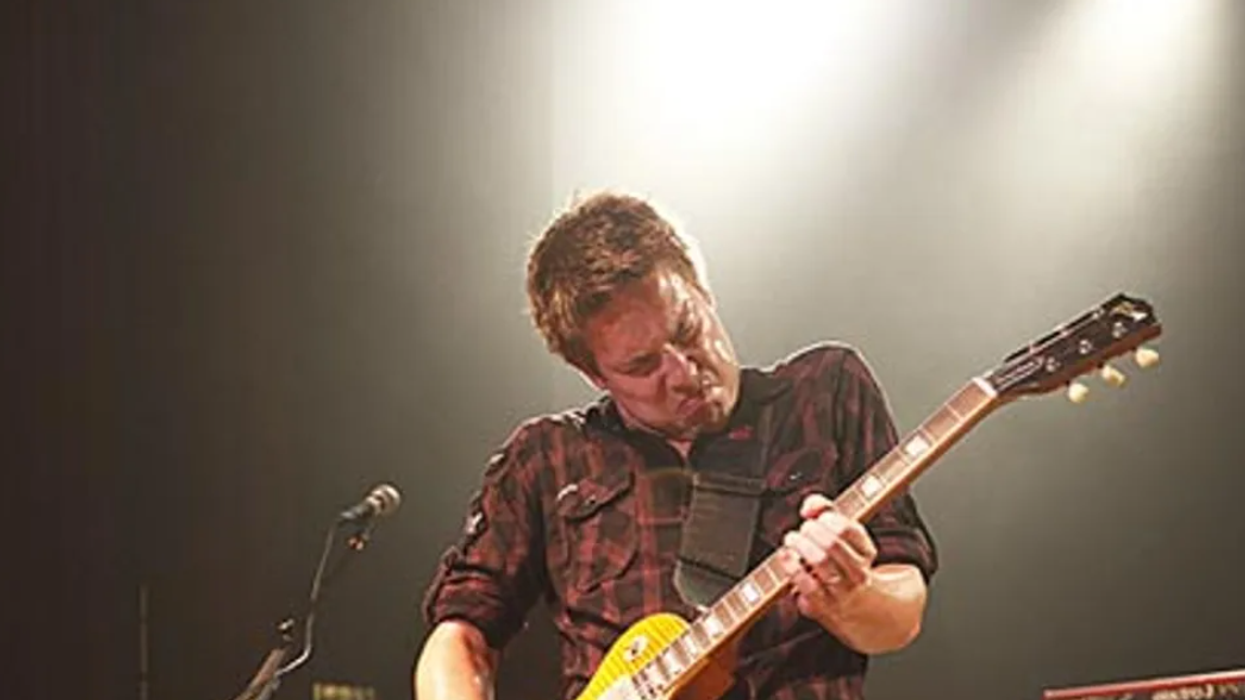

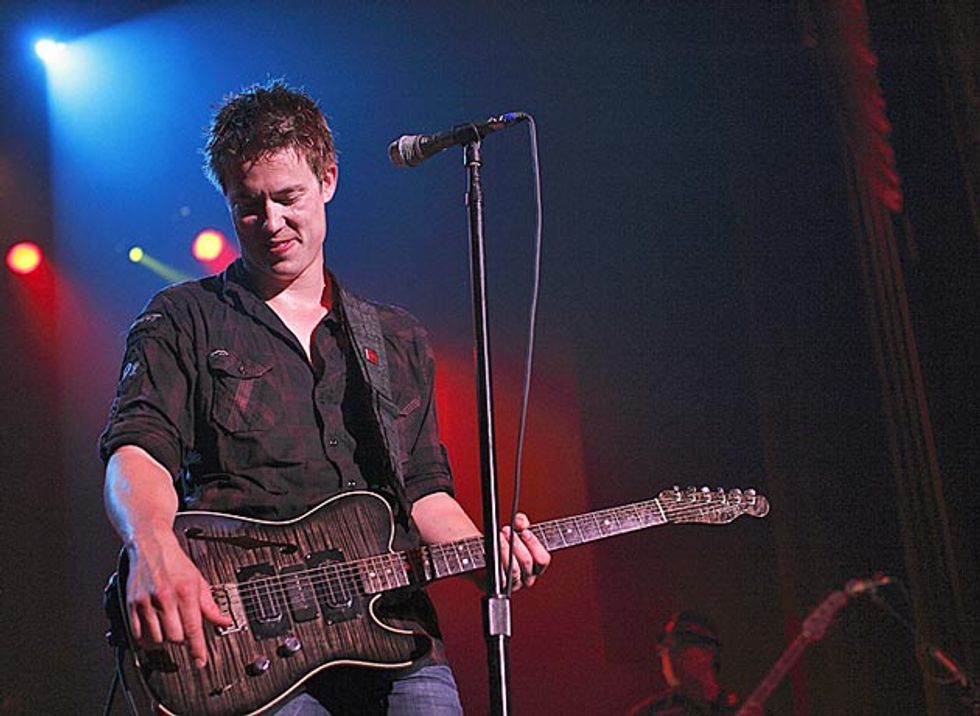





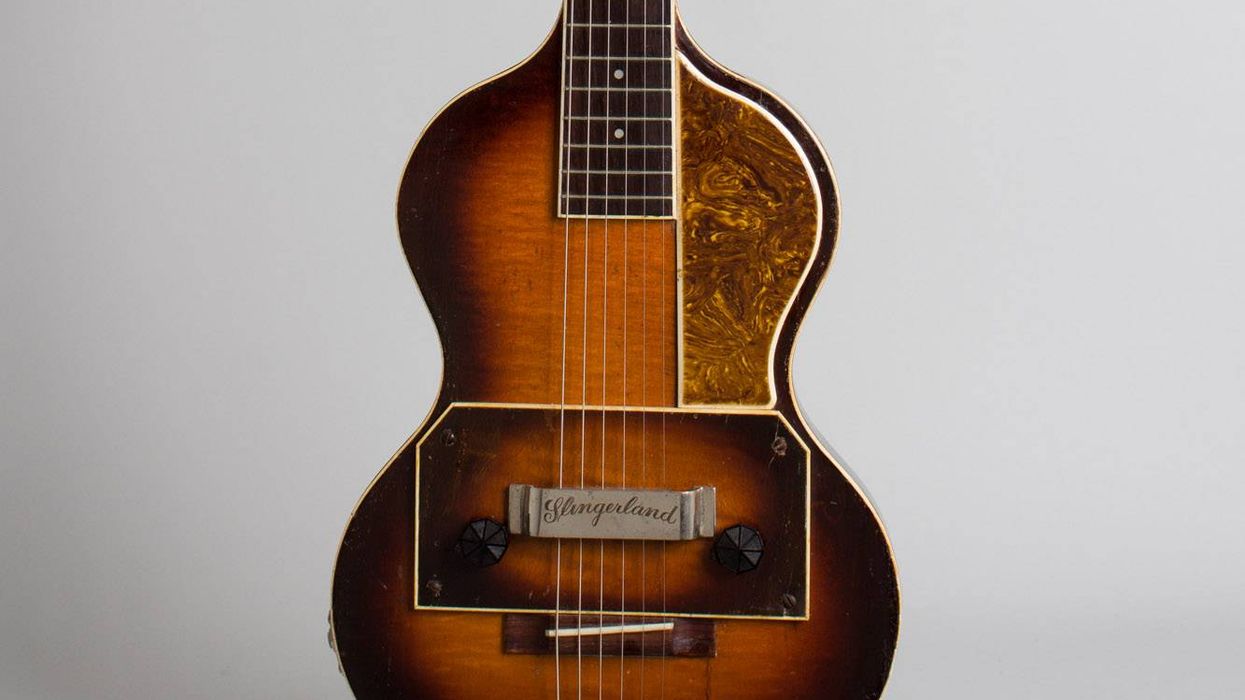
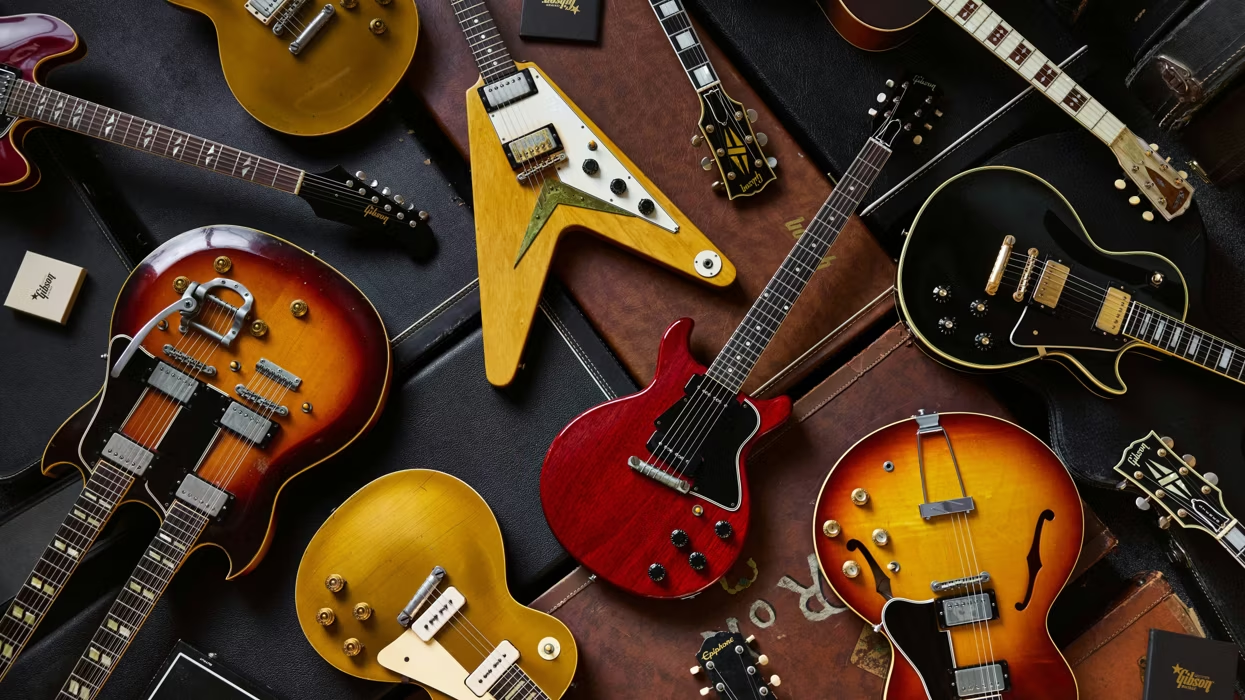

![Rig Rundown: Russian Circles’ Mike Sullivan [2025]](https://www.premierguitar.com/media-library/youtube.jpg?id=62303631&width=1245&height=700&quality=70&coordinates=0%2C0%2C0%2C0)
